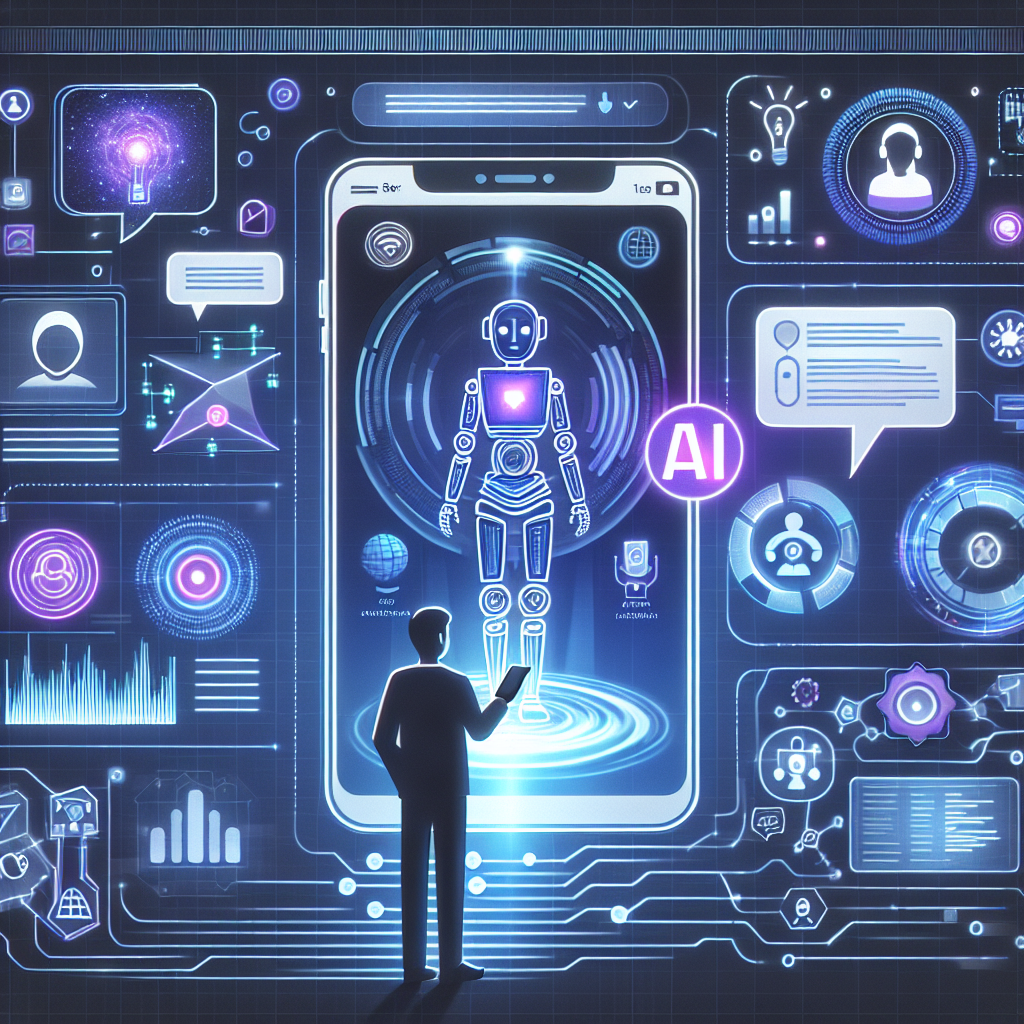Artificial Intelligence (AI) chatbots are revolutionizing the way businesses interact with their customers. These smart, virtual assistants are designed to simulate human conversation and provide instant responses to customer queries. With advancements in AI technology, chatbots are becoming more sophisticated and efficient, offering a seamless and personalized customer service experience.
In this article, we will explore the future of customer service interaction with AI chatbots, their benefits, challenges, and how businesses can leverage this technology to enhance customer satisfaction and improve operational efficiency.
Benefits of AI Chatbots in Customer Service
1. 24/7 Availability: One of the biggest advantages of AI chatbots is their round-the-clock availability. Customers can get instant support and guidance at any time of the day, without having to wait for human agents to respond.
2. Cost-effective: Implementing AI chatbots can significantly reduce operational costs for businesses. Chatbots can handle a large volume of customer queries simultaneously, freeing up human agents to focus on more complex tasks.
3. Personalized Customer Experience: AI chatbots are equipped with machine learning algorithms that enable them to learn about individual customer preferences and behavior. This allows chatbots to provide personalized recommendations and solutions, enhancing the overall customer experience.
4. Increased Efficiency: Chatbots are capable of handling repetitive and mundane tasks with speed and accuracy. This frees up human agents to focus on more strategic and high-value activities, leading to improved efficiency and productivity.
5. Scalability: AI chatbots can easily scale to accommodate a growing customer base without the need for additional resources. This makes them an ideal solution for businesses looking to expand their customer service capabilities.
Challenges of AI Chatbots in Customer Service
1. Limited Understanding: While AI chatbots have made significant advancements in natural language processing, they still struggle with understanding complex queries and nuances of human language. This can lead to misinterpretation of customer queries and inaccurate responses.
2. Lack of Emotional Intelligence: Chatbots lack the ability to understand and respond to human emotions, which can lead to frustrated customers who feel like their concerns are not being addressed effectively.
3. Security and Privacy Concerns: AI chatbots store vast amounts of customer data, raising concerns about data security and privacy. Businesses must ensure that proper security measures are in place to protect customer information.
4. Integration Challenges: Integrating AI chatbots with existing systems and platforms can be complex and time-consuming. Businesses may face technical challenges and compatibility issues when implementing chatbot solutions.
5. Maintenance and Updates: AI chatbots require regular maintenance and updates to ensure optimal performance. Businesses need to invest time and resources in monitoring and improving chatbot functionality to meet customer expectations.
How Businesses Can Leverage AI Chatbots for Customer Service
1. Identify Use Cases: Businesses should identify specific use cases where AI chatbots can add value to customer service operations. This could include handling frequently asked questions, providing product recommendations, or assisting with order tracking.
2. Design Conversational Flows: Designing intuitive and engaging conversational flows is essential to ensure a seamless customer experience. Businesses should map out user journeys and anticipate potential customer queries to create effective chatbot interactions.
3. Train and Test Chatbots: Training chatbots with relevant data and testing their responses in real-world scenarios is crucial to ensure accuracy and effectiveness. Businesses should continuously monitor and optimize chatbot performance based on customer feedback and insights.
4. Integrate with CRM Systems: Integrating AI chatbots with customer relationship management (CRM) systems can provide a unified view of customer interactions and preferences. This enables businesses to deliver personalized and consistent customer experiences across all touchpoints.
5. Provide Human Backup: While AI chatbots can handle a wide range of customer queries, there will be situations where human intervention is necessary. Businesses should provide seamless handoffs to human agents when chatbots are unable to resolve complex issues.
Frequently Asked Questions (FAQs)
Q: How can AI chatbots benefit businesses in customer service?
A: AI chatbots can benefit businesses by providing 24/7 availability, cost-effective solutions, personalized customer experiences, increased efficiency, and scalability.
Q: What are the challenges of implementing AI chatbots in customer service?
A: Challenges of implementing AI chatbots include limited understanding of complex queries, lack of emotional intelligence, security and privacy concerns, integration challenges, and maintenance and updates.
Q: How can businesses leverage AI chatbots for customer service?
A: Businesses can leverage AI chatbots by identifying use cases, designing conversational flows, training and testing chatbots, integrating with CRM systems, and providing human backup when necessary.
In conclusion, AI chatbots are transforming the customer service landscape by providing personalized, efficient, and scalable solutions for businesses. While there are challenges to overcome, the benefits of AI chatbots far outweigh the drawbacks. By investing in AI chatbot technology and integrating it seamlessly into customer service operations, businesses can enhance customer satisfaction, drive operational efficiency, and stay ahead in an increasingly competitive marketplace.

